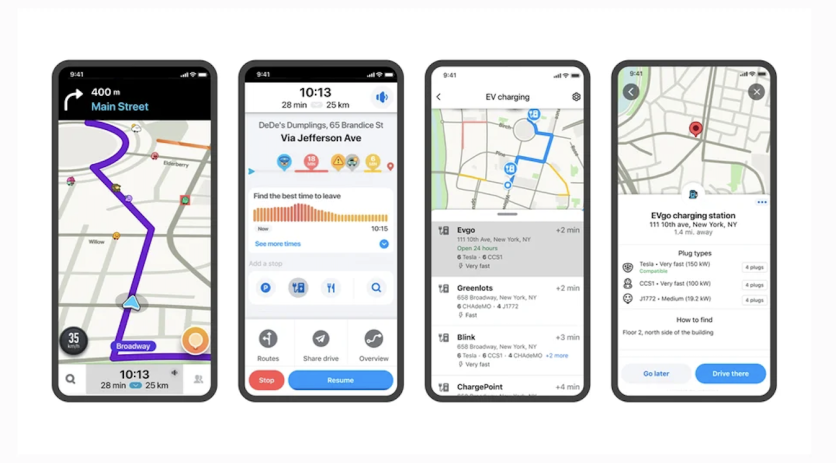The famous navigation app, Waze, is now offering a chance for EV drivers to use its app to determine charging stations for clean energy vehicle owners to add to their trips. The app will help users plan a route that would account for their charging needs, and users may either add this as a stop or make their top destination when heading out.
This feature is similar to other apps in the market that offers aid to clean energy users, including that Google Maps which introduced this feature back in February.
Waze Adds EV Charging Stations to its Map to Help Drivers

Google recently announced that the Waze app is now getting a significant integration to its navigation feature, as electric vehicle charging stations are now available on its map. Waze already had this feature before, but what is new here is that people may now specify what their electric vehicle is, as well as its plug type to help Waze identify the best charging stations to head to.
This means that while people may head to an EV charging station, they may be met with incompatible plugs that would defeat the purpose of their trip. With the new feature from Google, it will correctly identify which charging station is the best for a driver's car, one which would also fit the plug when hooked up to the car.
Read Also : Google Maps Android to Add EV Charging Station Routes for Clean Energy Car Owners via the App
Clean Energy Route, Not So Much? Buggy Feature Claims
According to Electrek's report, this latest announcement is only rolling out to the global market and is not yet complete. There have been bugs in the new system from Waze, as it points the owner to gas stations and asks about their preferred gas types despite already choosing the electric vehicle specification.
This bug is still persistent for now, and it defeats the purpose of looking for EV charging stations in the area.
Clean Energy Charging Routes for All
One of the main updates for map apps on the smartphone and Android head units is the arrival of EV charging routes when the clean energy revolution soared in the past couple of years. Not only do people need to charge their EVs when out on the roads, but they also have to account for their mileage, and if they would reach their charging destination.
Companies like Apple, Ford, and others integrated this feature on their smartphones and connect to a car's infotainment system via features like the Apple CarPlay and Android Auto.
Google was among the companies to also bring this to their Maps app, with its initial beta testing mode helping plan the best possible route to take to reach one's destination with an ample charge.
The goal to go electric will not be feasible in the long run if companies disregard EV charging stations on navigation platforms and the like. Despite a buggy start for Waze by pointing people to gas stations instead of EV charging stations, this new feature will get better in the long run, to help the public plan their trips ahead and never run out of charge.

ⓒ 2025 TECHTIMES.com All rights reserved. Do not reproduce without permission.




